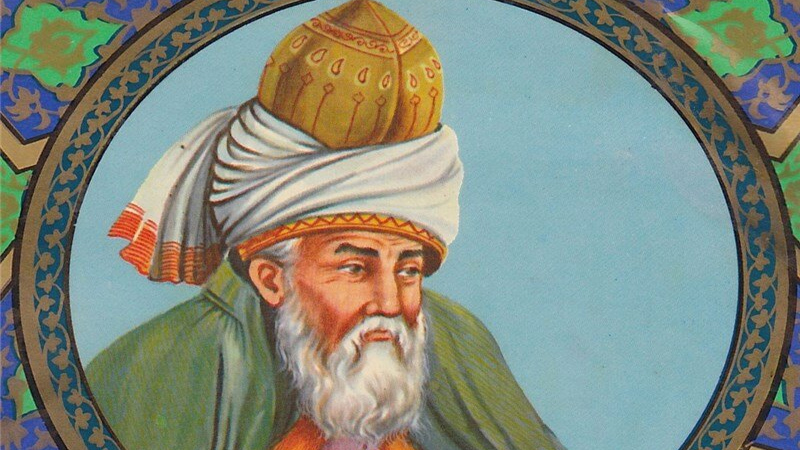Iran Press/ Iran news: Jalal ad-Din Muhammad Balkhi, also known as Jalal ad-Din Muhammad Rumi and popularly known as Mowlana, was born in Balkh (then the city of Greater Khorasan in Persia), on September 30, 1207, and passed away in Konya, where he was laid to rest at the age of 66.
During his 66 years of life, Mowlana has left a legacy of major Persian poetic and prose works; among them, The Quatrains (rubaiyat), Divine-Shams (or the great works of Shams), and Fihe Ma Fi (a collection of mystical sayings) in the Persian language.

Mowlana is better known for his six-volume Masnavi Ma'anavi (spiritual couplets), which many consider one of the greatest works of Islamic mysticism.
His father, Baha al-Din, was a renowned Iranian religious scholar. Under his patronage, Mowlana received his early education from Burhan-al-Din.
Mowlana continued with his education until he was 40 years old. However, on his father's death, Rumi succeeded him as a professor in the famous Madrasah at Konya at about 24 years. He received his mystical training first at the hands of Burhan al-Din, and later, he was trained by Iranian philosopher Shams-e Tabrizi.
Mowlana's Works:
As a genius theologian, a brilliant scholar, and a pillar of Islam, he followed his father's place until his spiritual friend and teacher, Shams of Tabriz, appeared in his life. With the appearance of Shams, Mowlana became reborn and soon started his marvelous work 'Masnavi', (Mathnawi), consisting of 24,000 Persian verses at age 38.
His other famous work in Persian is 'Divan-e Shams-e Tabriz' (the collected poems of Shams of Tabriz). Rumi's poetry has a mystic connotation, a combination that is the universal language of the human soul. Rumi's title is Mowlana which means our master.
One of his artifacts, Masnavi, the largest mystical exposition in Persian verse, discusses and offers solutions to many complicated problems in metaphysics, religion, ethics, mysticism, etc.
Mowlana's poetry is often divided into various categories: the quatrains (rubaiyat) and odes (ghazals) of the Divan, the six books of the Masnavi, the discourses, the letters, and the almost unknown Six Sermons. Rumi's primary work is Masnavi-ye Manavi (Spiritual Couplets).
207/203
Read More:
Iran pays homage to Shams, master of Persian poet Mowlavi
Ali Akbar khandan

